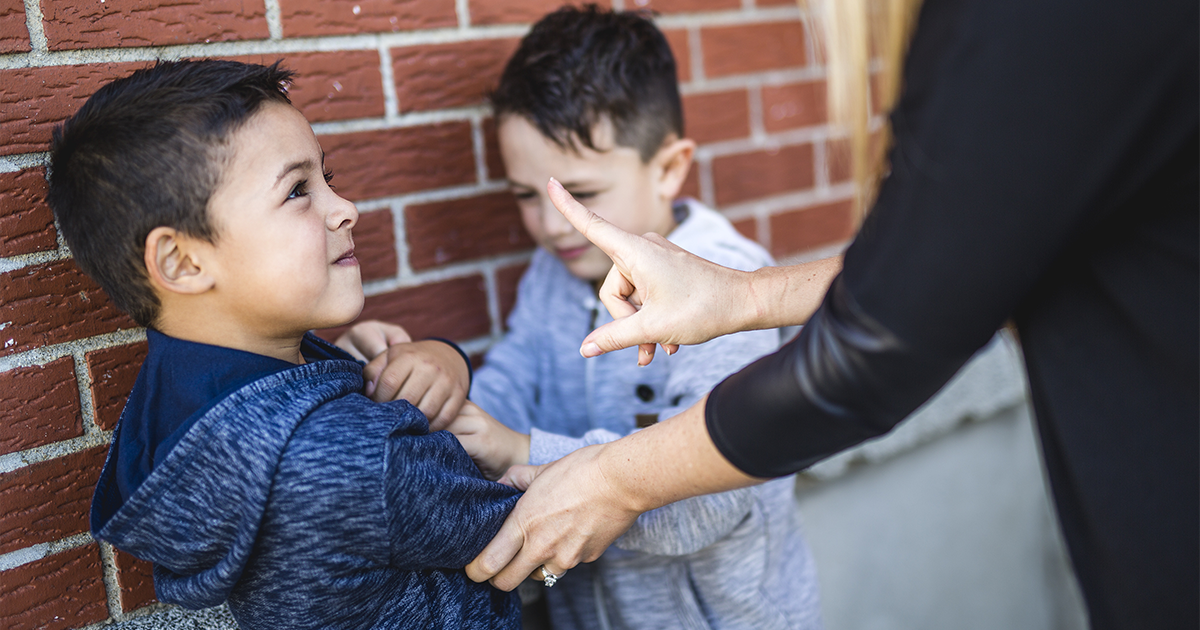
Making a Difference in Discipline
How APs are using equitable practices to pave the way for positive interventions.
Topics: Assistant Principals, School Culture and Climate
Positive behavioral interventions and supports (PBIS), restorative justice, and other research-informed strategies are providing educators with new tools to regulate classroom behavior and create environments that are rooted in equitable practices. And assistant principals are leading the shift toward fairer, less exclusionary practices.
“Schools punish Black and brown students much more harshly than their white peers,” says Heather A. Williams, principal of Perritt Primary School in Arkadelphia, Ark. “This leads to the racial gap in exclusionary discipline.”
While working as an AP at Warren Dupree Elementary School last year, Williams worked with teachers on restorative practices, starting with a focus on identifying their own implicit biases to determine their impact on discipline in the classroom. “It takes educators identifying their biases, focusing on restorative justice and true equity, to see systemic change,” she says.
Consistency is key, Williams adds, to establishing expectations among children and staff alike. “We all know the idea that ‘fair is not always equal,’” she says. “However, it is also essential for students to understand the clear expectations of what we (our school community—teachers, students, families, etc.) expect to ensure that our school is a safe, orderly environment.”
Seeing the Science
Ruby Payne, Ph.D., former principal and author of Emotional Poverty in All Demographics: How to Reduce Anger, Anxiety, and Violence in the Classroom and other books, examines the scientific “whys” behind child behaviors to help educators be more consistently compassionate to children of both genders and disparate economic classes.
In her 2021 NAESP Pre-K–8 Principals Conference keynote, Payne explained that the time it takes for the average female brain to rebound from an emotional event is approximately two minutes, while for boys, it can take up to five hours. Understanding these differences is critical to setting fair expectations for students to process an anger-inducing incident.
Educators can employ simple strategies to speed that recovery time and bring calm to volatile situations, Payne says. For instance, stand shoulder-to-shoulder with a male student instead taking of a more confrontational stance, she says, or have students look at the ceiling or get a drink of water to take their minds off the situation. Students who keep their eyes downcast “are processing almost everything emotionally,” Payne says.
Practicing Humanness
Hilda A. de Leon, assistant principal at Hodge Road Spanish Language Dual Immersion Magnet Elementary School in Knightdale, N.C., asks students to describe how they felt during an incident though drawings or words.
Practicing “humanness” in discipline includes thinking about a student’s basic needs, she says. Does the child feel scared and need to feel safe? Is the child tired, thirsty, or hungry? Or if the child is extremely agitated, maybe a “walk and talk” can help them calm down.
“We know that writing and drawing help us to calm, to breathe, and to reflect,” de Leon says. “I have reflection sheets in my office with sentence starters/stems. I want the children, regardless of the situation, to leave my office knowing it’s a safe place to talk, to calm down, and to reflect.”
Building Relationships
The challenge is to curve and change behavior instead of punish it, says Jason L. Morgan, principal of Lumberton Intermediate School and 2021 National Assistant Principal of the Year for Texas. Proactive, PBIS-based discipline is a team effort that relies on relationships.
“Assistant principals must be visible and accessible during the school day,” Morgan says. “It is mission-critical to visit classrooms first thing in the morning. I want my students to view me as the most positive person they see from the moment they walk in the door until they leave.”
He suggests tapping resources such as PBISworld.com for strategies that help support students in the moment. “If they are exhausted, they sleep; if they are thirsty, they drink water; if they are hungry, I hand them a granola bar,” Morgan says. “Most importantly, if they are cautious and afraid, make them feel safe—safe to relax, to be calm, and to talk.”
Belinda Lichty Clarke is director of alumni engagement at the Medill School of Journalism at Northwestern University and a freelance writer based in Evanston, Illinois.

